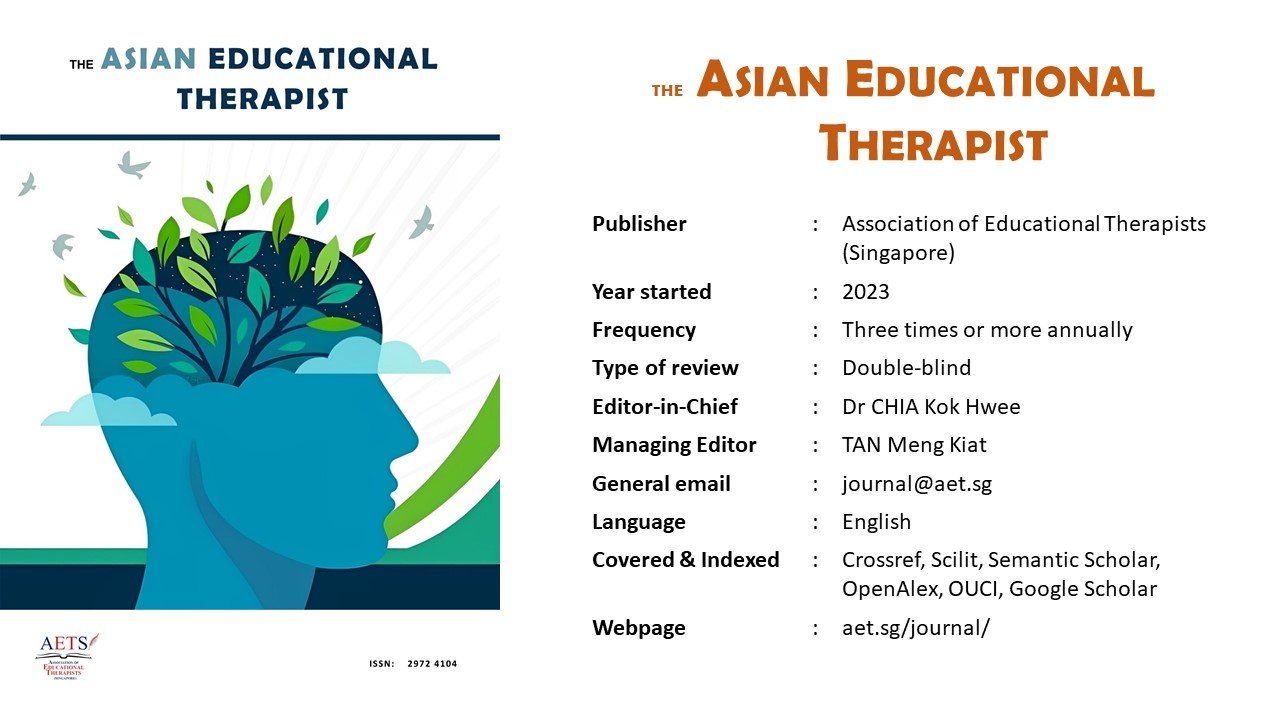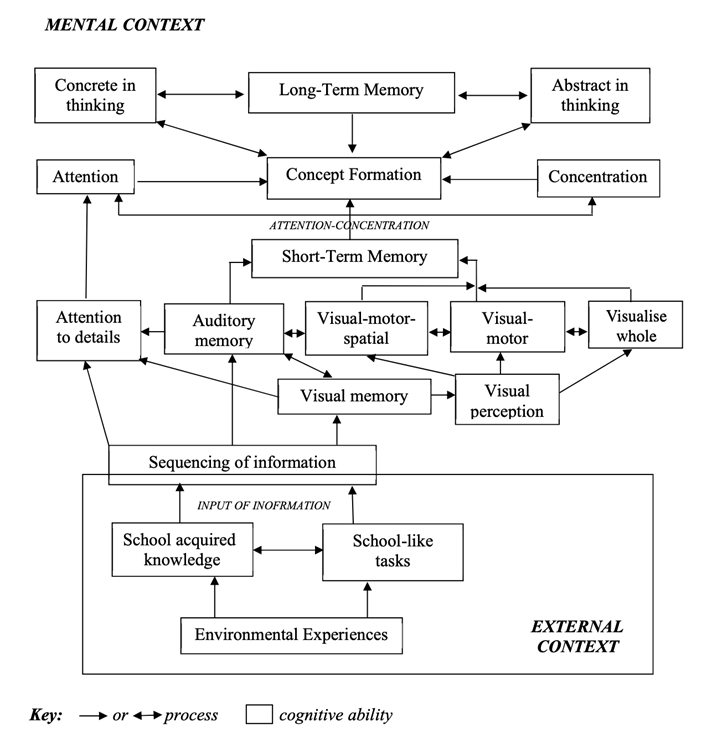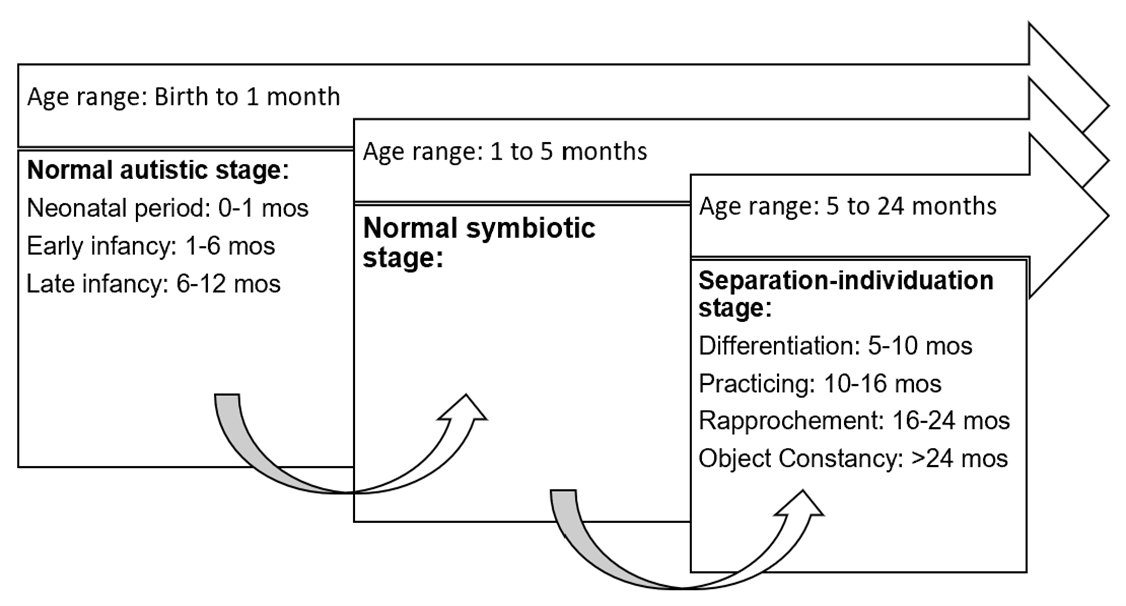About the Journal

The Asian Educational Therapist is an open access, trusted and inclusive journal dedicated to supporting educational therapists at every stage of their professional journey, from those who just begin their careers to experienced practitioners. Our mission is to empower professionals who are passionate about making a meaningful and lasting difference in the lives of children and young adults with neurodevelopmental and learning challenges.
Through the publication of rigorous research, evidence-based strategies, innovative interventions, and practical insights, our journal bridges the vital gap between theory and practice. The journal understands the importance of accessible, high-quality knowledge that not only advances professional expertise but also translates directly into effective, compassionate care.
The journal welcomes allied health and social medicine professionals, including speech and language therapists, occupational therapists, behavioral therapists, counselors, psychotherapists, and others working in related fields, to share their research, effective strategies, interventions, practical insights, concepts and methodologies. By bringing together a broad spectrum of practitioners, it aims to foster interdisciplinary collaboration and holistic approaches to supporting individuals with learning and developmental needs. It promotes collaboration among professionals in the field by sharing diverse views and fostering a sense of community among its readers.
Continuous professional growth and shared knowledge are the foundation for unlocking potential and transforming lives. Whether you are refining your practice or building your foundational skills, the journal aims to provide sound resource for inspiration, guidance, and connection with like-minded professionals to innovate, collaborate, and lead positive change to advance life trajectory paths for those its serves.



